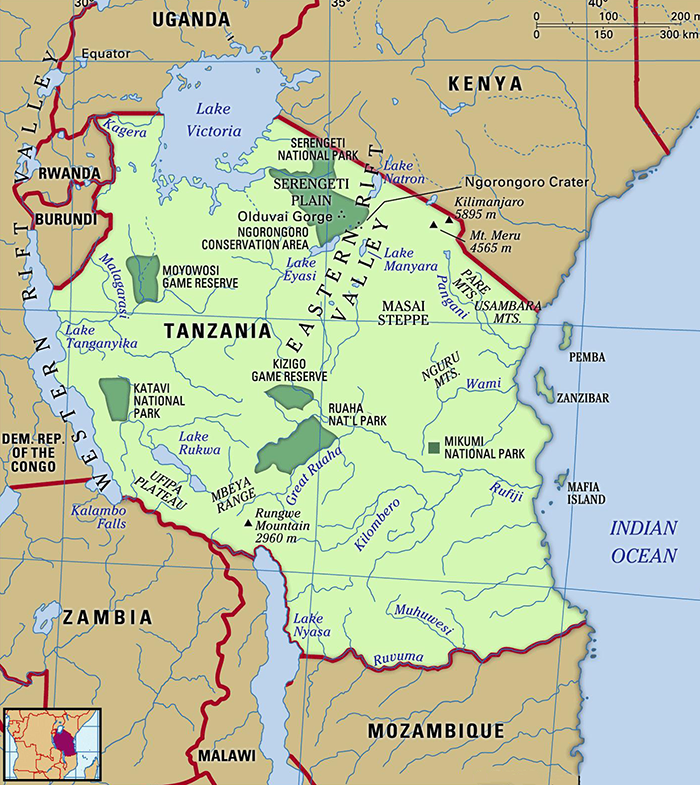



 Zafar Bangash
Zafar BangashLike most post-colonial states in Asia and Africa, Tanzania too suffers from two contradictory ailments. On the one hand, lack of infrastructure, inefficiency, and corruption debilitate life for ordinary people while on the other, traffic congestion as a gift of modernity clutters its roads.
This is not to suggest that there are no proper roads in Tanzania, especially the capital city, Dar es Salam. There are paved roads in the city centre as well as broad highways and tall glass buildings creating the impression of a modern city but in the inner city, there are Third-World like conditions: cluttered unpaved potholed roads, vendors’ wares spread on the sidewalks intruding onto the streets and massive traffic congestion at virtually all times of the day.
Being a globetrotter (as this writer is), it is difficult not to make comparisons. Two impressions stand out about Dar es Salam. First, its inner city streets remind one of streets in any major city in Pakistan. This is important both culturally and historically. The sounds and rich aroma of spices are reminiscent of any Pakistani city.
Muslim culture is clearly evident everywhere, after all the very name Dar es Salam — the abode of peace — reminds one of Islamic values. Fortunately, it has so far upheld this important virtue.
The other comparison one makes is with South Africa. Unlike South Africa where violence is quite pronounced in some major cities, Tanzania is a very tranquil and peaceful place. This is also because the overwhelming majority of Muslims are not immigrants — Indians, Arabs, or others — who may be considered outsiders, but the local African population. Both Indian (Muslim) and Arab cultural influences are quite pronounced.
Officially, it is said that Muslims and Christians are about equal in numbers. This is not the impression one gets walking in Dar es Salam. Scholars that have done extensive research in this field — Professor Abul Sheriff and Muhammad Said, for instance — are of the firm belief that Muslims constitute a clear majority.

There are masjids virtually at every street corner; at times more than one. Dar es Salam perhaps has as many as 1,000 masjids. Adhan, the Muslim call to prayer, can be heard five times a day. Masjids are full at salah times. Muslim businesses are established everywhere, especially near masjids. The official language — Swahili or KwaSwahili — derives its name from the Arabic word sahil, meaning coast. Tanzania is situated in East Africa, hugging the coast of the Indian Ocean.
The island of Zanzibar is located about two hours’ boat ride from the mainland to the east. It was the union of the island state with Tanganyika in 1964 that created the state today called Tanzania. The name is an amalgam of Tan from Tanganyika and Zan from Zanzibar with the letters ia representing “in Africa.” It was a Muslim student that coined the name Tanzania!
Zanzibar is almost 100 % Muslim. It has a rich Islamic history that would need a separate article to describe. The architecture is entirely Islamic, with Iranian influence being most pronounced. It was people from Shiraz that first landed on Zanzibar Island in the ninth century. They did not venture into the mainland until later barring the city of Bagamoyo, about 70 km north of Dar es Salam. The sultan’s palace in Zanzibar, now a museum, sits majestically at the seafront.
Tanzania sits at the crossroads of history and geography. Historically, it was the Muslims from Yemen, Omanm and Shiraz that first arrived in Zanzibar and later ventured into mainland Tanganyika. The early Muslims were seafaring traders. In fact, even before their trading ventures, a group of more than 100 Muslims had sought refuge in Abyssinia (today’s Ethiopia and Eritrea) to escape persecution from the Makkan mushriks in the fifth year of the Prophet’s (pbuh) mission in Makkah.
Sharing borders with eight countries, Tanzania boasts the famous Kilimanjaro Mountain as well as hugs a portion of Lake Victoria in its northwest. It is a land full of lush green trees and plenty of fruits. Situated south of the equator, it gets plenty of rain in April and May, at times heavy. This writer visited Dar es Salam from May 4–11 and came in the thick of the rainy season. Temperatures at this time of year hover between 25–30 ˚C. In summer (Decem-ber–January for Tanzania, being in the southern hemisphere) they rise to 35 ˚C and upward.
Since independence from Britain in 1961 (before that the Germans colonized the country but Muslims rose up in revolt and drove them out in 1906 only to be colonized by the wily British), the country has functioned according to an unwritten rule. If the president is a Christian, the vice president is Muslim and vice versa. This has served the country well. Corruption, like in most other countries, appears to be a debilitating problem. This also explains why there are so many potholed roads in the inner city. The other reason of course is the construction of high-rise apartment buildings where once a single or double storey house was. This has caused increase in population and the resultant traffic congestion, especially in the inner city.
The solution is to have an efficient public transit system but that would require massive capital investment. International lending institutions — the World Bank and International Monetary Fund — do not support such ventures because they are not profitable even if they are of benefit to the people.
In the absence of a carefully planned traffic system, road congestion is only going to get worse with the resultant loss of time for most people.
ICIT Director Zafar Bangash was in Tanzania last month to participate in conferences at the University of Dar es Salam and Zanzibar, the latter of which was by students from the International Relations Department of the University of Zanzibar.
